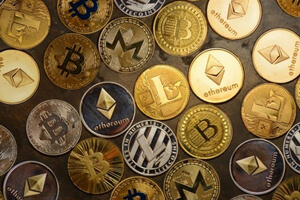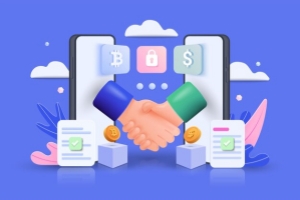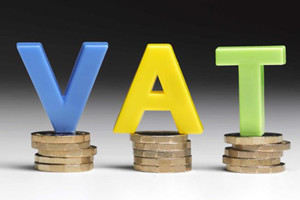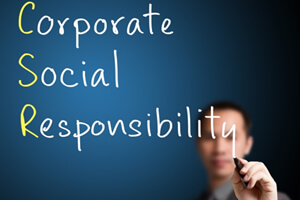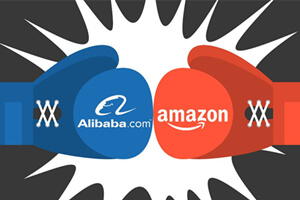Alibaba Challenges Amazon with a Promise: Fast Global Shipping
Narrator: The Chinese e-commerce giant, Alibaba, has big global plans.
Ali, Ali.
Narrator: One major goal?
Ali, Ali, Ali.
Narrator: To deliver goods from China to anywhere on the planet in 72 hours.
Amazon and Alibaba are both looking to capture a larger share of the global e-commerce market, which is expected to grow by $1.4 trillion by 2025.
Jeffrey Towson: It’s all execution. It’s who’s faster on the ground, it’s who’s focused where.
Narrator: And fast shipping plus cheaper prices is a big part of winning new customers. Alibaba’s fast delivery service is already gaining traction in European cities and working with Western delivery companies as it builds a shipping network different from Amazon’s. Alibaba gave us a look at its largest automated warehouse in China as it plans to speed up deliveries around the world.
Ping Tu oversees daily operations in this warehouse run by Alibaba’s logistics company Cainiao. He says robots here do all the heavy work.
This efficiency helped Alibaba process $75 billion worth of packages during the company’s largest sales event in China last year called Singles’ Day, which takes place over 11 days. E-commerce analysts say this was more than all of e-commerce sales during Black Friday, Cyber Monday and Amazon’s Prime Day combined.
But Alibaba isn’t just an e-commerce company. It owns a vast empire of other tech businesses and many of those parts help speed up the shipping process. So when you buy a product from its retail website, Alibaba’s payment company can process the transaction and then the shipping is handled here. This network allows Cainiao to quickly gather information digitally about your package, including the price, weight and destination and then send it directly to Chinese Customs to be cleared for export. Over the years, this process has gotten faster, from taking one month to clear a package to now only a few minutes.
William Xiong: Every year, we set very aggressive experience improvement targets.
Narrator: William Xiong is in charge of making sure your packages take the most efficient route. The company relies on a global network of 3,000 partner airlines, postal services and other delivery companies to handle the actual transport. This allows Alibaba to expand its shipping routes with new partners without having to build and maintain its own fleet.
William Xiong: We are running more than 80 chartered flights every week and transfer centers in key markets, like Russia, France, Spain to allow very effective final deliveries.
Narrator: That’s a striking difference from Amazon, which says it has invested billions of dollars to build its own fleet that includes more than 40,000 trailers and 75 cargo planes.
Amazon is also making a promise for fast delivery, but unlike Alibaba, its speedier service is only available in 21 countries where products can be delivered in a few hours. But customers must pay for a subscription program that can be as low as about $13 or as much as about $130 a year.
Right now, Alibaba delivers to more than 190 countries, but only a few products arrive within 72 hours with no shipping fee. So as the company tries to gain traction, it says it plans to expand the service to a wider array of products and charge $3.
The company says this service will entice more people to its retail website. AliExpress looks very similar to Amazon and users can browse more than 100 million items. But there’s one thing you’ll notice as you compare products. E-commerce analysts say they are generally cheaper on AliExpress and that’s largely because the company has direct access to Chinese factories and merchants, cutting out the middleman.
Jeffrey Towson: AliExpress is connecting the world consumers with Chinese manufacturers. That’s an advantage Amazon doesn’t have.
Narrator: Jeffrey Towson runs a market research firm that looks at tech and logistics companies.
Jeffrey Towson: AliExpress is effectively Alibaba at its most opportunistic. It’s trying to do something very difficult, which is reach the rest of the world’s consumers.
Narrator: But e-commerce analysts say AliExpress’ low-cost strategy has a risk: counterfeit products. For years, consumer watchdogs, tech and luxury companies, plus the US government have accused Alibaba’s e-commerce website of selling fake products. Amazon has also faced accusations from the Trump administration for selling counterfeit goods from Chinese third-party merchants on the site.
Peter Navarro: You get defrauded when you buy a counterfeit but sometimes these things can kill you.
Narrator: Alibaba says it was cooperating with governments to address counterfeiting and using technologies and partnership with brands and other stakeholders to help identify and remove counterfeit goods from its platforms. Amazon said it’s reporting confirmed counterfeiters to law enforcement.
To deliver any product from its website anywhere, both companies will have to tackle one of the most challenging issues for any delivery company: the last mile. E-commerce analysts say this step represents about 50% of the total cost of a delivery because that’s been hard to automate and requires manpower.
So Alibaba is testing a new system in Chinese cities.
The company calls this a post office, but instead of a mail carrier, they are self-driving robots. Alibaba says one delivery robot can carry 50 packages at once and can trim cost and time.
Amazon said it’s also committed to transforming its transportation network. So it’s conducted trials to improve the last leg of the journey, like testing drones that it says could deliver packages within 30 minutes of an item being ordered.
The push to gain more traction in the global e-commerce market could push the two tech giants to improve their systems even more. And that could mean that the next item you buy gets to you even faster.


